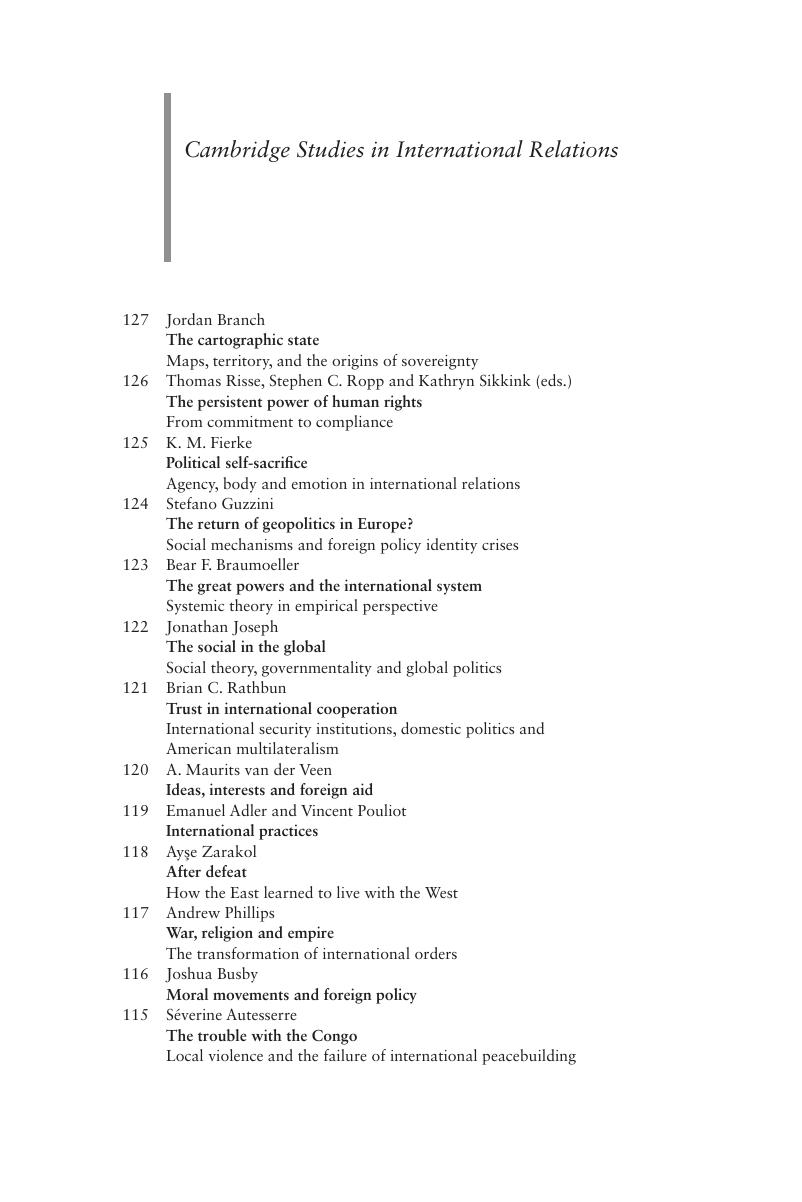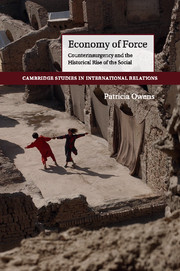Book contents
- Economy of Force
- Cambridge Studies in International Relations 139
- Economy of Force
- Copyright page
- Dedication
- Dedication
- Contents
- Acknowledgements
- 1 Introduction: oikonomia in the use of force
- 2 The really real? A history of ‘social’ and ‘society’
- 3 Out of the confines of the household?
- 4 The colonial limits of society
- 5 ‘More than concentration camps’: the battle for hearths in two late-colonial emergencies
- 6 Society itself is at war: new model pacification in Vietnam
- 7 Oikonomia by other means: counterinsurgency in Afghanistan and Iraq
- 8 Conclusion: ‘it’s the oikos, stupid’
- References
- Index
- Series page
- References
Series page
Published online by Cambridge University Press: 05 September 2015
- Economy of Force
- Cambridge Studies in International Relations 139
- Economy of Force
- Copyright page
- Dedication
- Dedication
- Contents
- Acknowledgements
- 1 Introduction: oikonomia in the use of force
- 2 The really real? A history of ‘social’ and ‘society’
- 3 Out of the confines of the household?
- 4 The colonial limits of society
- 5 ‘More than concentration camps’: the battle for hearths in two late-colonial emergencies
- 6 Society itself is at war: new model pacification in Vietnam
- 7 Oikonomia by other means: counterinsurgency in Afghanistan and Iraq
- 8 Conclusion: ‘it’s the oikos, stupid’
- References
- Index
- Series page
- References
Summary

- Type
- Chapter
- Information
- Economy of ForceCounterinsurgency and the Historical Rise of the Social, pp. 357Publisher: Cambridge University PressPrint publication year: 2015



